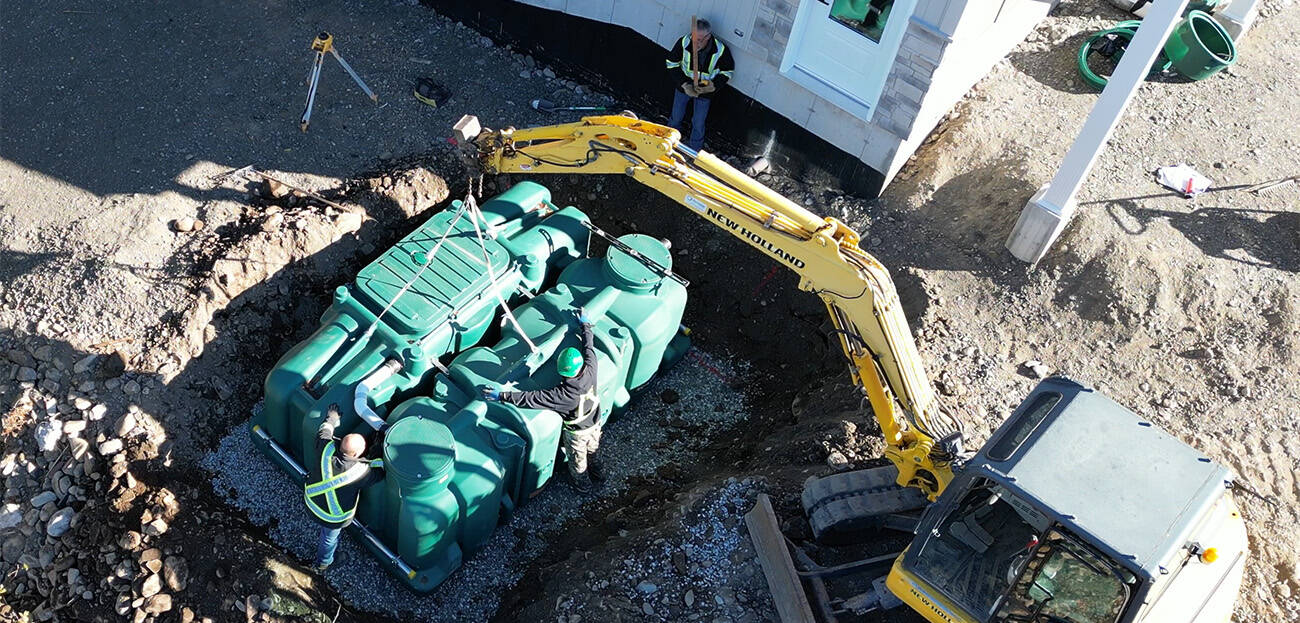Why do Ecoflo septic systems use a coconut husk fragment filter?

In our pursuit of the most effective filtering medium to treat domestic wastewater, our research teams studied a wide range of minerals, synthetics, and organic materials.
The results were clear: coconut husk fragments offer the most reliable performance over time. And, because they are 100% natural, renewable, and compostable, they make our Ecoflo septic systems the most sustainable solutions available.
But what is it about coco that makes it the solution of choice? To understand, let’s look at five key properties: sustainability, fragment particle size, porosity, absorption and water retention, and mechanical resistance.
Table of contents
By transforming coconut husk fragments into a filtering medium, we give second life to a valuable resource and ensure that no part of the coconut tree’s bounty is wasted.
The all-natural product we create is not only renewable, but fully compostable after its years of treating wastewater are over.
Coconut husk fragments also minimize CO2 emissions related to transport. Most synthetic and sand-based filtering media are transported by road or rail.
By contrast, the coco we source from Sri Lanka makes use of maritime shipping, which the scientific community accepts as being the most carbon-efficient mode of transport.
How efficient is maritime shipping?
According to the International Maritime Organization (IMO), an agency of the United Nations:
Fragment particle size
Coconut husk fragments are produced by cutting up the husk that surrounds the fruit of the coconut. This mechanical process gives us complete control over the size of each fragment and overall porosity, guaranteeing a uniform filtering medium that delivers consistently high performance over time.
Porosity
Coconut husk fragments provide an effective and durable wastewater filtering medium because they have the right proportion of micropores and macropores.
Micropores are an ideal environment for the microorganisms that make biological wastewater treatment possible. Macropores, on the other hand, promote the gas and water exchanges that are essential for effective treatment.
The structure of coconut husk fragments contains fibers that are interconnected by parenchyma, a natural binder that has a high absorption capacity.
This unique characteristic gives the filtering medium exceptional stability, an advantage that helps Ecoflo septic systems overcome two of the main challenges faced by on-site wastewater treatment systems: variable load conditions and frequent periods of non-use.
Mechanical resistance
Due to their structure, all organic filtering media naturally break down over time. This process compacts pores that are critical to the wastewater treatment process and degrades the filtering medium until it is no longer effective.
Coconut husk fragments make an ideal filtering medium because they contain a high proportion of lignin, one of the main components of natural fibre. This material's rigidity and resistance to degradation help the filtering medium maintain its three-dimensional structure and porosity over time.

The bottom line
What does all of this mean for you? With each coconut husk fragment filter in your Ecoflo septic system, you get years of eco-responsible, highly effective wastewater treatment that protects your property and the environment for generations to come.
Now that’s a sustainable septic solution.

Want to know if Ecoflo is right for you?
Our septic system experts are waiting to hear about your project!
Share your ideas with us and we’ll recommend the best solution for your home, cabin, or business.






